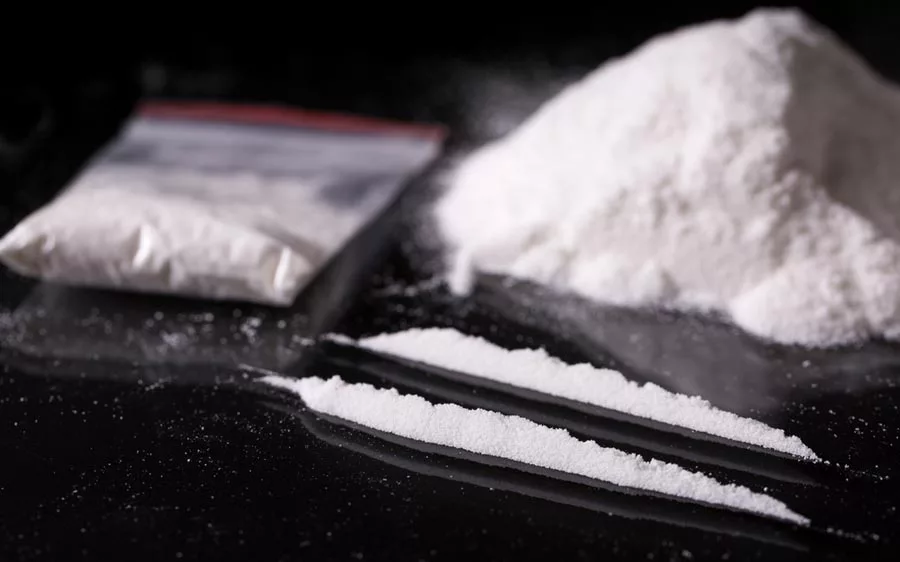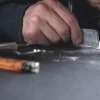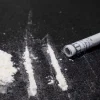Effective Treatment Programs for Cocaine Abuse
Cocaine addiction treatment is a necessary part of overcoming someone’s cocaine addiction. With the right cocaine addiction treatment facility, a person could potentially leave their cocaine habit behind forever.
Cocaine addiction affects a disproportionate amount of individuals in the US. Cocaine addiction treatment centers offer support and medical help for those who want to leave their cocaine addiction behind. But how does cocaine addiction treatment work, and why is cocaine such a dangerous drug?
Keep reading to understand the risks of cocaine addiction, and how Resurgence Tennessee can help you overcome coke with effective programs for recovery!
What is Cocaine?

Cocaine is a drug, derived from the coca plant. It can be used as a stimulant or as a local anaesthetic. In its purest form, cocaine is a white crystalline powder that dissolves in water and alcohol. It’s also known as coke, snow, flake, and blow.
A common form of cocaine abused in the U.S., crack cocaine, comes in small rocks that users smoke through glass pipes often called a “crack pipe” or “stem.”
Why is Cocaine Such an Addictive Drug?
Cocaine is a powerfully addictive drug that causes long-lasting changes in brain function. Cocaine abuse can lead to tolerance, dependence, and craving as well as serious medical complications.
Cocaine increases the amount of dopamine in your brain. Dopamine is a neurotransmitter involved in pleasure, movement, and emotional response. Cocaine blocks the normal reabsorption of dopamine by the central nervous system, causing high concentrations of the chemical to stay in the synapses between your nerve cells.
24 Hour Cocaine Addiction Hotline
888-290-5254
This flood of dopamine produces an intense feeling of euphoria that can last up to 30 minutes after use. The more you use the substance, the shorter the window of euphoria, generally. As a result, people tend to want to use more of the drug to get the same effects.
The Need to Treat Cocaine Addiction
The drug use triggers other effects on the nervous system as well: increased heart rate and blood pressure; dilated pupils; insomnia or sleepiness; loss of appetite; tremors; headaches; convulsions; irritability and restlessness are some common side effects from cocaine use disorders.
Repeated use leads to tolerance: more cocaine is needed to achieve the same effect for you as before because more dopamine receptors are blocked by cocaine molecules in each dose. Ultimately, a substance use disorder is an illness.
It is a legitimate disease and, though there is a significant stigma attached to drug problems, the truth is that if you are struggling with the habit, you are a victim of the disease and are worthy of empathy, support, and help, not judgment.
What are the Underlying Causes Leading to Cocaine Dependence?
There are multiple factors that affect and can influence you towards falling into a habit of substance abuse. Oftentimes, you may be dealing with multiple of these factors conspiring together, which results in a substance use disorder.
Knowing what these factors are and which of them apply most directly to you can be helpful in getting ahead of a habit before it develops or spirals further. Knowing the factors can also be critical in being able to recognize where a loved one might be at risk.

Genetic Factors
- It is believed that 50% of our personality traits are inherited from our parents, which in turn affects our susceptibility to developing addictions. This means that if your parents were alcoholics or drug abusers and you have inherited those same genes from them, then you may be at a higher risk of becoming addicted to drugs or alcohol yourself.
Brain Chemistry
- The brain’s reward system — the network of nerve cells that transmit signals associated with pleasure and reward — is involved in drug dependence. Drugs hijack this system, flooding it with dopamine, a chemical that plays a role in feelings of enjoyment and motivation.
- Over time, if you engage in habitual drug abuse, you will reach a point of needing the substance just to feel “normal” or “happy” — leading to addiction. Brain chemistry that is out of balance can often be responsible for persons being addicted to multiple substances.
Mental Illness
Substance abuse and mental illnesses are deeply connected and interwoven. Pre-existing mental disorders like anxiety, depression, and PTSD all carry substance abuse as a risk factor that accompanies the conditions. The reason for this is that with those mental conditions, you might try to self-medicate with addictive substances.
Trauma/Environmental Factors
Active trauma, as well as the influence of peer pressure and one’s surroundings, can have a deeply profound effect on the predisposition you have towards falling victim to drug abuse.
Socio-Economic Factors
On a far larger, almost macro level, there is an important connection between socio-economic factors and drug abuse. The fact remains that marginalized communities are disproportionately affected by substance abuse.
There are numerous theories as to why that’s the case but one of the most obvious is that these communities are dealing with multiple layers of hardship and challenges that cause them to be vulnerable and at risk for excessive substance use.
Why is Cocaine Addiction So Dangerous?
Cocaine is one of the most dangerous drugs ever created. It can lead to severe physical and psychological problems, even death by a cocaine overdose. It’s not a drug that you want to mess with. And if you do decide to use it, it’s important to remember that cocaine addiction is real and can happen fast.
Cocaine use can cause long-term damage to your nose, throat, and lungs because it constricts blood vessels in these areas. This can lead to more serious health issues like brain hemorrhages (bleeding in your brain), seizures, strokes, or heart attacks if you smoke crack cocaine or freebase coke (rocks).
Cocaine Detox Hotline – Immediate Help
888-290-5254
If you take too much cocaine at once or mix it with alcohol or other drugs, your body won’t be able to process everything quickly enough and this can cause drug toxicity (damage caused by toxic substances in your body). Drug toxicity can and often DOES lead to death.
Cocaine addiction treatment aims to break the dependency on the drug and give people their lives back.
What are The Warning Signs of Cocaine Addiction?
Cocaine addiction can absolutely destroy lives. Knowing the warning signs that indicate addiction could potentially help you get ahead of or recognize where there is a problem of cocaine abuse. Please note that taken by themselves, or even in combination, none of these signs are definitive indicators of cocaine abuse.

Nothing short of finding the actual substance or finding someone actively involved in the act of cocaine use can be considered definitive proof. Nevertheless, these signs should all be treated as a cause for concern.
- Unexplained weight loss – Cocaine is a stimulant that causes the body to burn up fat stores. Many people who use cocaine will lose weight rapidly, which can be a sign of an addiction.
- Increased energy and alertness – People who use cocaine report feeling more energetic and alert than usual. This increased energy can make it difficult for them to slow down or relax — even when they’re not on the drug — and may cause them to have trouble sleeping at night.
- Increased heart rate and blood pressure – Cocaine can increase your heart rate and blood pressure, which can be dangerous if it persists over a long period of time. The drug also increases the risk of heart attack or stroke in those who are predisposed to these conditions by causing changes in their blood vessels and making them more sensitive to stress hormones.
- Insomnia, agitation, or paranoia (extreme anxiety) – Cocaine can cause insomnia or difficulty sleeping because it keeps the user awake at night; however, it also causes agitation, paranoia (extreme anxiety), or hallucinations.
- Risk-taking behavior – You put yourself in dangerous situations while using cocaine or when coming down from a cocaine high.
- Social isolation – Patterns of isolation and major changes to one’s typical social behaviors can be a sign that they are falling victim to a drug habit and might be in need of intervention.
What are the Withdrawal Symptoms of Cocaine Addiction?
Cocaine withdrawal symptoms can begin as soon as one hour after the last use of cocaine and can last up to a week. The severity of the withdrawal symptoms varies depending on how much and how often you used cocaine.
The symptoms subside slowly over a period of 1-2 weeks, although some people report lingering effects that can last up to several months. Cocaine withdrawal symptoms include:
- Agitation
- Anxiety
- Depression
- Fatigue
- Headaches
- Body Pains
- Insomnia (trouble sleeping)
Proper treatment of the withdrawal from cocaine addiction is a key component of preventing relapse as oftentimes the symptoms can be overwhelming and can result in persons giving up on drug rehab as a legitimate option for moving forward.
Cocaine Addiction Treatment: Is it Really Necessary?
Cocaine addiction treatment is very important because cocaine can be very difficult to quit. It is estimated that only about 10% of people who try to quit cocaine on their own succeed at it. This is why professional treatment centers and treatment providers are so important.
It is important to treat cocaine addiction with the seriousness that is befitting of the habit. An addiction treatment program is the critical first step in life with substance use disorders. It is critical to seek treatment for cocaine addiction if you or your loved one is struggling with the habit before it gets too late.
Inpatient Treatment vs Outpatient Treatment for Cocaine
These two approaches represent the general schools of thought that treatment providers implement when attempting to treat cocaine addiction or substance use disorders in general.
Inpatient addiction treatment (sometimes also known as residential treatment programs) typically involves staying in a treatment facility for several weeks or months. Inpatient addiction treatment programs are particularly useful when you have suffered from addiction for many years and are unable to stop using drugs or alcohol on your own.
Although some doubt the need for inpatient care for cocaine, SAMHSA (the Substance Abuse and Mental Health Services Administration) has recommended that those with chronic cocaine use can benefit most from detox and inpatient treatment.
Outpatient Rehab Services for Cocaine

Outpatient addiction treatment is much less intensive than inpatient treatment, but it can still be an effective way to get sober. Outpatient settings usually require you to attend group therapy sessions and individual counseling. These programs also usually include some form of monitoring to ensure that you don’t relapse while participating in the outpatient program.
Both types of treatment have their benefits and drawbacks. Inpatient programs are often more expensive than outpatient programs, but they can be more effective at helping you achieve long-term sobriety because they allow you to focus entirely on your recovery without the distractions of everyday life.
Outpatient programs may be less expensive and more convenient, but if you’re not able to follow through with the required treatments, then these programs won’t be very helpful for your recovery efforts.
What do Drug Abuse Treatment Programs Consist Of?
Drug abuse treatment is a long process. It involves many different kinds of treatment, including medication, counseling, and support groups. The goal of drug abuse treatment is to help you stop abusing drugs and alcohol and lead a healthier life. The types of services offered vary depending on your needs, budget, and preferences. But most drug abuse treatment programs include some combination of the following components:
Immediate Help For Cocaine Addiction
888-290-5254
Medical Detox in a Cocaine Treatment Program
A detox program can be a part of a larger treatment plan for an individual who has been abusing cocaine. This phase of treatment helps people overcome the uncomfortable symptoms and physical and psychological effects of withdrawal from cocaine. These programs are most often used in the treatment of cocaine, other drugs, or even alcohol abuse. Detoxification removes all traces of the drug from the body and decreases cravings for it.
During this time, patients will go through withdrawal symptoms — intense emotions such as anxiety, depression, and irritability — that can make it difficult to focus on anything else besides the drug they’re addicted to. Treatment centers typically have in their wheelhouse, several effective treatments for mitigating the impact and severity of the withdrawal symptoms, including using addiction medicine to limit the strength of the symptoms.
Therapies Used in Our Treatment Programs
This is the core of rehab and recovery. There are several types of behavioral therapies utilized in addiction treatment. Behavioral therapy in general is used extensively in addiction treatment because the improvement of behavioral health is key to the treatment of core addiction causes. Below are some of the more popular behavioral interventions used as common treatments and treatment options.
Cognitive behavioral therapy (CBT)
This type of therapy helps people identify and change the way they think about things. It can help them think differently about their drug use and the consequences of that use, including addiction. CBT can also help people develop new skills to deal with difficult situations without using drugs or alcohol.
Dialectical behavior therapy (DBT)

DBT is an approach that teaches mindfulness and emotional regulation skills. DBT also focuses on the importance of relationships and how they impact you. DBT may help with issues like self-harm or suicide attempts.
Family Therapy
The relationships that family members have between one another can be hugely influential to persons struggling with substance abuse and mental health issues.
Motivational interviewing (MI)
MI is a style of counseling that helps you set goals and make plans for change in your life — whether it’s related to substance abuse or not. MI works by encouraging people who have problems with drugs or alcohol to do things differently so they can reach their goals.
Group therapy
Group sessions allow addicts to share experiences with others who are going through similar issues and challenges. The support provided by other group members helps addicts realize that they are not alone in dealing with their addiction and that recovery is possible.
Dual Diagnosis Treatment for Cocaine and Mental Health
This method determines firstly whether or not there are underlying issues that have put the client at risk of addiction. Should it be determined that there is an underlying issue like depression, anxiety, bipolar disorder, or more, medications are prescribed to treat the health problems like mood swings and more.
Aftercare Planning and Relapse Prevention Support
There are many types of support groups that are used in rehab for cocaine addiction as treatment options. People who have been using cocaine can go to a support group and talk with people who have been where they are. Support groups are a place where people can get help with their problems without having to worry about being judged by others.
Cocaine Anonymous (CA) is one type of support group that can help addicts overcome their addictions. CA is a 12-step program that was created for people who want to stop using drugs such as cocaine and other illegal substances. With this program, people can learn how to take control of their lives again and also learn how to stay sober in the future without having to worry about relapsing back into drug use again.
How Can You Identify an Effective Treatment Facility?

When looking for an effective cocaine treatment center, one of the most important things to consider is its reputation within the industry. Reputation is everything when it comes to choosing which facility will provide quality services and care — especially when dealing with something as sensitive as cocaine addiction.
When you go to a high-quality addiction treatment center, you will be treated as an individual with unique needs. The staff will create an individualized treatment plan based on your specific needs and goals. This plan will be designed to help you achieve your goals in a way that is tailored to your situation.
They also usually have both residential and outpatient settings. Contingency management is also key. You should be able to ask about these things without being met by a stone wall or no answers.
24 Hour Addiction Treatment – Call Now!
888-290-5254
Check the National Institute on Drug Abuse (NIDA)! You will find articles written by medical experts who discuss different aspects of substance abuse and recovery programs that may be beneficial for your loved one’s life. This also includes reputable facilities.
Why are Treatment Plans at Resurgence Considered Industry Leading?
Resurgence’s treatment facilities are fully equipped with all modern and industry-standard amenities. At Resurgence, the treatment program employed for cocaine treatment is individualized.
Our expert staff members are certified to administer the many behavioral treatments that are today considered industry standards.
If you are seeking treatment for cocaine addiction in a safe and effective setting, call Resurgence now!





